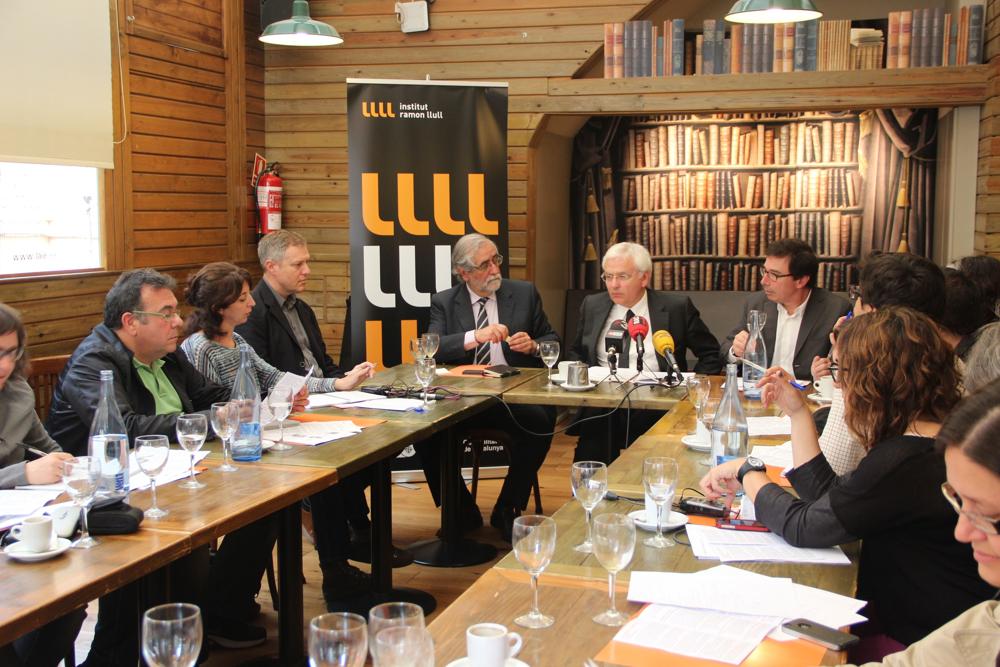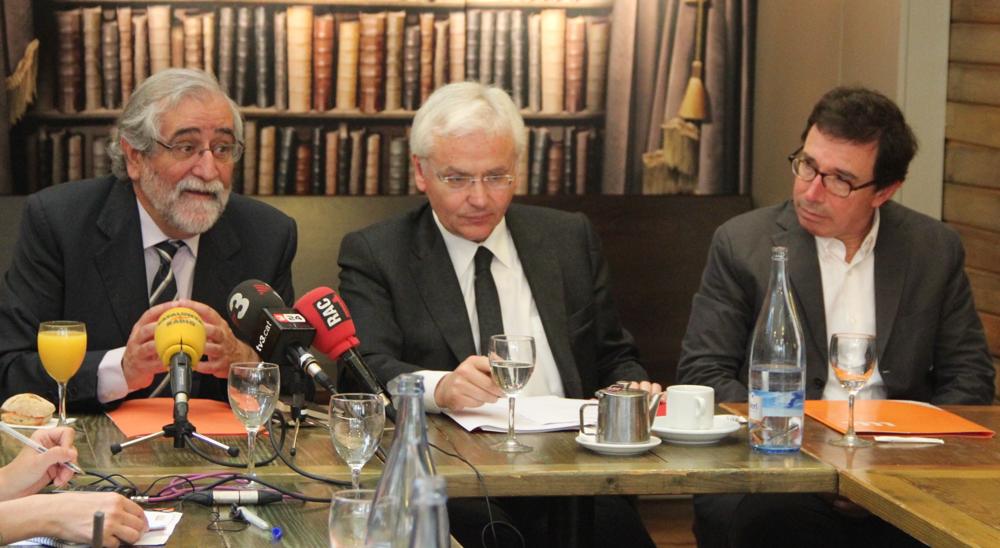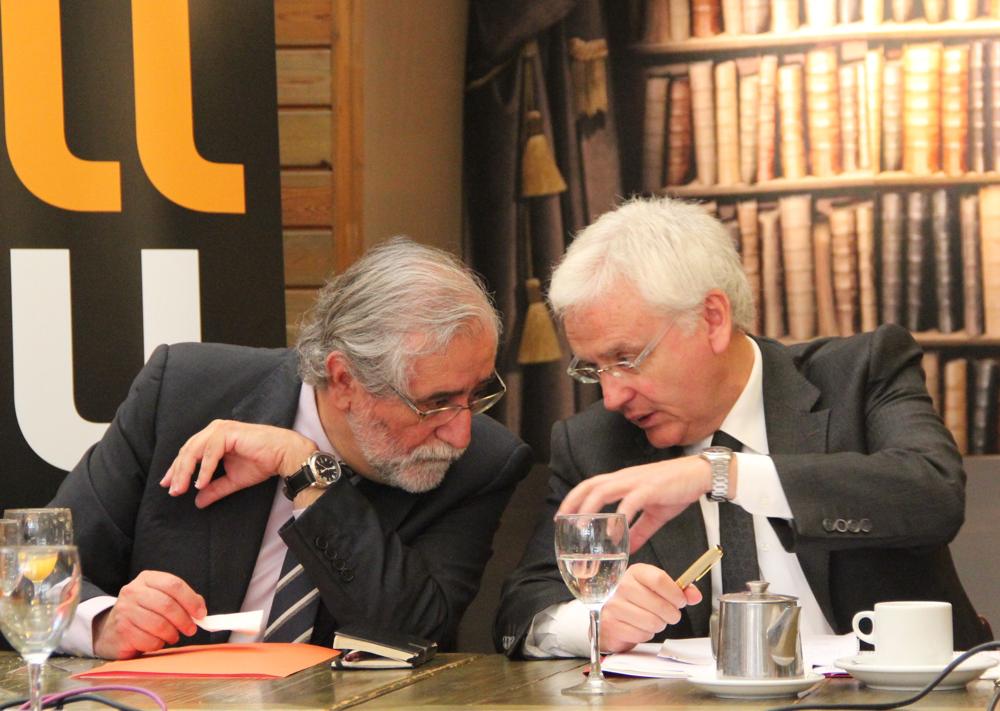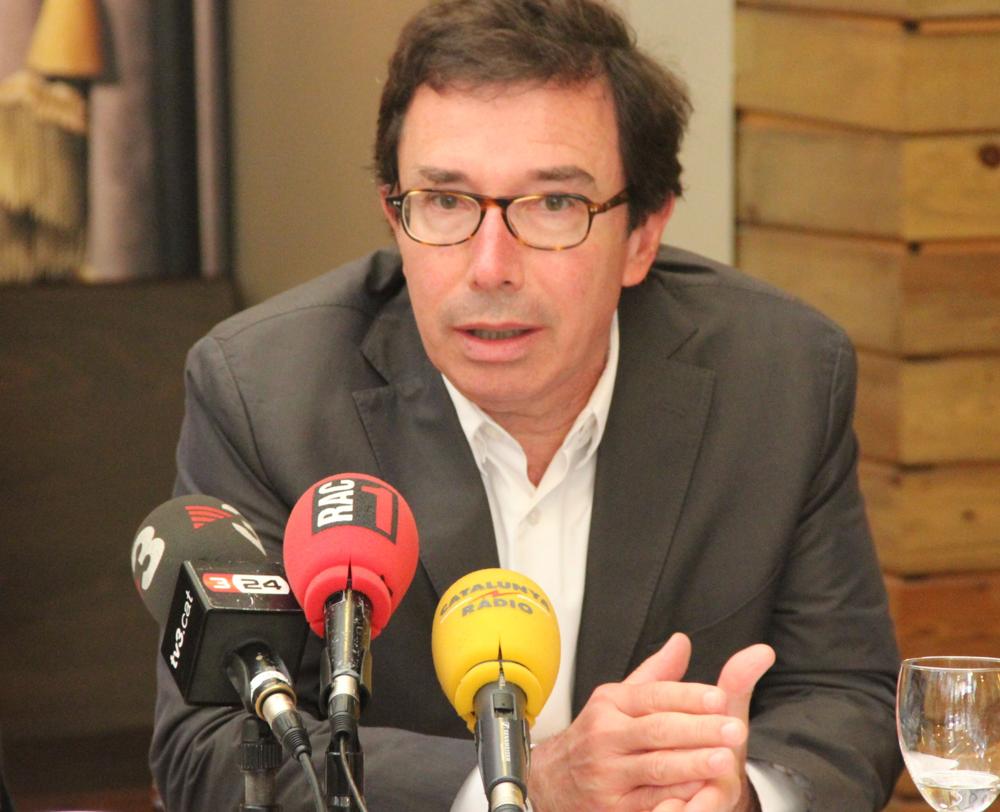The number of books published each year has grown notably in the last decade, allowing Catalan authors to fully integrate in the international publishing sector. The rise in translations has been especially notable from 2007 onwards, coinciding with Catalan literature's participation as guest of honour at the Frankfurt Book Fair. Since then, more than 100 Catalan literary translations, not counting books for children and young adults, have been published every year. Thus, we find 145 translations in 2007; 114 in 2008; 133 in 2009; 131 in 2010; 135 in 2011 and 102 in 2012. Of the total translations published each year, an average of 67% are subsidized by the IRL.
The balance of the last 10 years was presented last Wednesday by the Minister for Culture, Ferran Mascarell, the director of the Institut Ramon Llull, Vicenç Villatoro, and the associate director, Àlex Susanna.
According to Mascarell, "Catalonia is a country that has constructed its own novel," and literature has become one of the pillars of Catalan culture. And he argued that, "despite everything, literary talent has more confidence in the country and its culture than at any other time in history." On top of this confidence, he added, there is "the continuity of the policies of cooperation between the public and private sectors, which are essential and result in this figure of over 100 translations a year, which is a great deal." In conclusion he added that, "the golden age of Catalan literature was last century and the high point is the last 20 years."
For his part, Vicenç Villatoro described this balance of 10 years of translations as "especially satisfactory," as "the different lines of action of the IRL converge in translations. If there is a good network of Catalan teachers and students around the world, there will be translators. And if presence on prestigious international cultural stages, such as the Venice Art Biennale, works, there will also be repercussions for translations." Villatoro reminded us that "the function of the Institut Ramon Llull is not to generate a set of rules, or to act as any author's literary agent, but to ensure that our authors are presented with the most wide-ranging literary scenes abroad and that each language can choose according to its own interests."
Àlex Susanna said that, "the number of translations and subsidies remains highly and satisfactorily stable," and he pointed out that, "rather than keeping the number high, what is achieved is important with regard to the quality of the works, their diversity, the quality of the publishing houses that translate them and the strategic importance of the target languages." And he was especially satisfied with the "penetration in the English market, which up to now has proved very complicated."
In this respect, the rise in translations into English is especially significant: whereas in 2003 English accounted for only 2.3% of the translations subsidized by the IRL, by 2012 it had reached 10.1%. In 2013 this has made it possible for an extraordinary selection of titles to be published by prestigious publishing houses, including La plaça del Diamant (In Diamond Square), by Mercè Rodoreda, translated by Peter Bush, by Virago (Little, Brown & Co), Incerta glòria (Uncertain Glory), by Joan Sales, translated by Peter Bush (MacLehose Press), and El quadern gris (The Grey Notebook), by Josep Pla, also translated by Peter Bush (NYRB Classics).
Susanna also noted the importance of the classics, which "in 2012 accounted for 20% of the translation subsidies".
Spanish is the chief language into which Catalan literature is translated, although in terms of subsidies French heads the ranking with 17.7%, followed by Spanish (16.8%), Italian (11.6%), and German (8.4%).
La pell freda, by Albert Sánchez Piñol, is the book that has been translated into most languages (33), followed by La plaça del diamant (32). Salvador Espriu, translated into 23 languages, is third in the list of most translated authors.
The visibility of the translations, their impact on the respective markets and the presence of the authors on the international literary scene have ostensibly improved: successful sales have been achieved, foreign publishers are committing themselves to promoting the authors and their participation has increased on international literary platforms, such as the Hay Festival (Cartagena and Hay-on-Wye), PEN World Voices (New York), Voix de la Méditeranée (Lodève) or the Festival Eñe (Madrid). A new phenomenon that contributes to the diversity of translated Catalan literature is the sale of international rights of commercial non-fiction written in Catalan.









